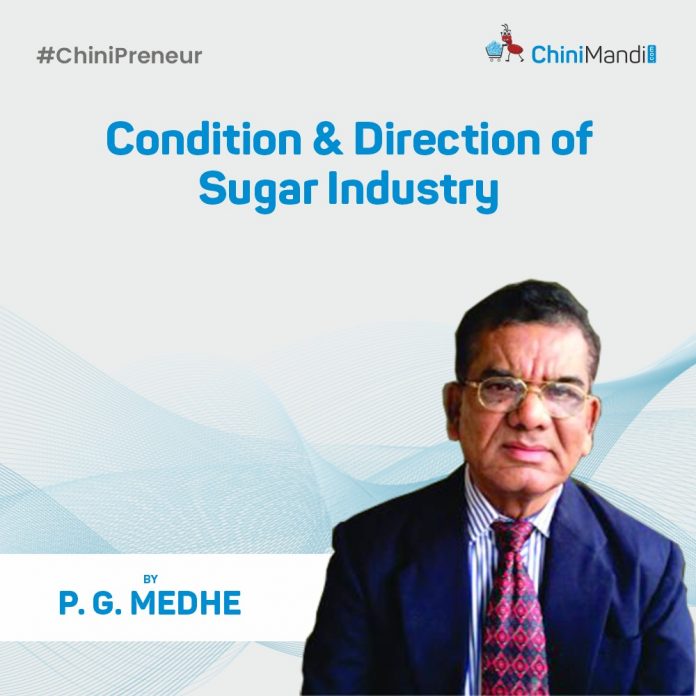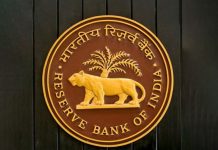While coming back to Delhi on 1st June, 2024, from Kanyakumari after the MEDITATION CAMP, Prime Minister of our country Hon. Narendra Modi appealed to the citizens of India to come forward for the overall development of the country by applying the principle of Reform, Perform and Transform. Further he revealed that while applying these three principles, we must consider the 4 Ss …Speed, Scale, Scope and Standard. The Indian sugar industry, one of the largest in the world, faces significant challenges and opportunities. The principles of Reform, Perform, and Transform provide a comprehensive framework for addressing these issues and ensuring sustainable development. Let’s explore each principle in detail…
1. Reform: Policy and Regulatory Reforms.
a) Simplifying Regulations: Streamlining policies to reduce bureaucratic hurdles and improve ease of doing business.
b) Price Controls: Reviewing and rationalizing pricing mechanisms for sugarcane and sugar to ensure fair compensation for farmers while maintaining competitive pricing for consumers.
c) Export Policies: Revising export policies to promote global competitiveness, including subsidies, export quotas, and trade agreements.
d) Subsidies and Incentives: Re-evaluating subsidies for sugarcane cultivation and providing targeted incentives for sustainable practices.
Land and Water Management:
a) Land Reforms: Encouraging consolidation of fragmented land holdings to improve efficiency and economies of scale.
b) Water Use Efficiency: Implementing water-saving techniques such as drip irrigation to reduce the water footprint of sugarcane cultivation.
Financial Reforms:
a) Access to Credit: Enhancing access to affordable credit for farmers and mill owners to invest in modern technologies and infrastructure.
b) Debt Restructuring: Providing mechanisms for debt relief and restructuring to support financially distressed sugar mills.
2. Perform: Improving Productivity and Efficiency –
a) High-Yield Varieties: Promoting the cultivation of high-yield and disease-resistant sugarcane varieties.
b) Modern Farming Practices: Training farmers in best practices, including crop rotation, integrated pest management, and precision agriculture.
c) Mechanization: Encouraging the use of machinery to reduce labor costs and increase efficiency.
Technological Advancements:
a) Digital Agriculture: Leveraging digital tools for crop monitoring, weather forecasting, and market information.
b) Process Optimization: Adopting advanced technologies in sugar mills for process optimization, energy efficiency, and waste reduction.
Supply Chain Management:
a) Integrated Supply Chains: Developing integrated supply chains from farm to factory to improve coordination and reduce losses.
b) Cold Storage and Transportation: Investing in cold storage and efficient transportation systems to maintain the quality of produce and reduce post-harvest losses.
3. Transform –
Sustainable Practices:
a) Environmental Impact: Adopting practices that minimize environmental impact, such as reducing chemical use, managing waste, and lowering carbon emissions.
b) Circular Economy: Implementing circular economy principles, such as using by-products for bioenergy, compost, and animal feed.
Diversification:
a) Product Diversification: Expanding beyond sugar to include ethanol, biogas, and other by-products to reduce dependency on a single commodity.
b) Market Diversification: Exploring new domestic and international markets to mitigate the risks associated with market fluctuations.
Community Development:
a) Farmer Welfare: Focusing on the welfare of sugarcane farmers through fair pricing, insurance schemes, and social security measures.
b) Skill Development: Providing training and education to farmers and workers to improve skills and employability in the industry.
Innovation and Research:
a) Research and Development: Investing in R&D to innovate new varieties, improve processing techniques, and develop sustainable practices.
b) Collaborations: Partnering with academic institutions, research organizations, and international bodies for knowledge exchange and technological advancements.
Implementation Strategy
Stakeholder Engagement:
a) Public-Private Partnerships (PPP): Encouraging PPPs to leverage private sector efficiency and public sector support.
b) Community Involvement: Involving local communities in decision-making processes to ensure that reforms and transformations are inclusive.
Monitoring and Evaluation:
a) Performance Metrics: Establishing clear performance metrics to track progress and impact of reforms and initiatives.
b) Feedback Mechanisms: Creating channels for continuous feedback and course correction to address emerging challenges and opportunities.
Government Initiatives:
a) Policy Framework: Developing a cohesive policy framework that aligns with national goals such as ‘Atmanirbhar Bharat’ (Self-reliant India) and sustainable development.
b) Incentives for Innovation: Providing grants and incentives for innovation and sustainable practices within the sugar industry.
By adhering to these principles and implementing the outlined strategies, the Indian sugar industry can achieve sustained growth, improve competitiveness, and contribute to the broader economic and environmental goals of the country. <This message was edited>
APPLICATION OF 4Ss: SPEED, SCALE, SCOPE AND STANDARD
The Indian sugar industry by applying the principles of Reform, Perform, and Transform, stakeholders must consider the 4 Ss: Speed, Scale, Scope, and Standard. These four dimensions can drive significant improvements and ensure the industry remains competitive and resilient. Here’s a detailed exploration:
1. Speed-
Rapid Implementation of Reforms:
a) Policy Rollout: Fast-track the implementation of regulatory and policy reforms to reduce bureaucratic delays.
b) Technological Adoption: Accelerate the adoption of advanced technologies in farming and processing to boost productivity.
c) Decision Making: Streamline decision-making processes within government and industry bodies to enable swift responses to market changes and challenges.
Quick Access to Finance:
a) Expedited Loan Processes: Simplify and speed up the approval processes for loans and subsidies to ensure timely access to capital.
b) Instant Financial Services: Utilise fintech solutions to provide quick financial services to farmers and mill owners.
Efficient Supply Chain Management:
a) Real-Time Data: Implement real-time tracking and management systems to ensure efficient logistics and supply chain operations.
b) Rapid Transport: Invest in fast and reliable transportation infrastructure to reduce transit times and preserve product quality.
2. Scale-
Large-Scale Operations:
a) Consolidation of Land: Encourage the consolidation of fragmented land holdings to create large-scale, efficient farming operations.
b) Economies of Scale: Promote the scaling up of sugar mills and processing units to benefit from economies of scale, reducing per-unit costs.
Widespread Adoption of Best Practices:
a) Training Programs: Launch extensive training programs to disseminate best farming and processing practices across the industry.
b) Massive Outreach: Utilise mass communication channels to reach a large number of farmers and stakeholders with information and updates.
Scalable Technologies:
a) Scalable Solutions: Invest in technologies and solutions that can be easily scaled across various regions and operations.
b) Infrastructure Development: Develop infrastructure that can support large-scale production and distribution, such as warehouses, cold storage, and efficient transportation networks.
3. Scope-
Diversification of Products:
a) Beyond Sugar: Expand product lines to include ethanol, bioenergy, molasses, bagasse, and other by-products to diversify revenue streams.
b) Value-Added Products: Explore the production of value-added products like organic sugar, specialty sugars, and other derivatives.
Market Expansion:
a) Domestic Market Penetration: Increase the penetration of sugar and its by-products in domestic markets by exploring new regions and consumer segments.
b) Global Markets: Enhance export capabilities to tap into international markets, ensuring compliance with global standards and regulations.
Research and Development:
a) Innovative Research: Broaden the scope of R&D activities to include genetic research, sustainability studies, and process innovations.
b) Collaborative Projects: Engage in collaborative research projects with academic institutions, government bodies, and international organizations.
4. Standard-
High Quality Standards:
a) Quality Control: Implement stringent quality control measures throughout the production and processing stages to ensure high product standards.
b) Certification and Compliance: Obtain relevant certifications (e.g., ISO, FSSAI) and ensure compliance with national and international standards.
c) Environmental Standards: Adhere to environmental standards to minimize the ecological footprint of sugarcane cultivation and sugar production.
d) Social Standards: Uphold social standards, ensuring fair labor practices, community development, and farmer welfare.
Operational Excellence:
a) Best Practices: Standardize best practices across the industry to ensure consistent performance and quality.
b) Benchmarking: Use benchmarking to compare performance against industry leaders and continually strive for improvement.
Customer Satisfaction:
a) Consumer Feedback: Regularly collect and analyze consumer feedback to improve product quality and meet market demands.
b) Brand Reputation: Build a strong brand reputation based on quality, reliability, and sustainability to gain consumer trust and loyalty.
Implementation Strategy for 4 Ss-
Integrated Approach:
a) Holistic Planning: Develop integrated plans that address all four dimensions (Speed, Scale, Scope, and Standard) simultaneously.
b) Collaborative Efforts: Foster collaboration among various stakeholders, including government bodies, industry associations, research institutions, and farmers.
Technology and Innovation:
a) Digital Transformation: Leverage digital tools and platforms for faster implementation, broader reach, and higher standards.
b) Continuous Improvement: Encourage a culture of continuous improvement and innovation to keep pace with evolving industry dynamics.
Monitoring and Evaluation:
a) Regular Assessments: Conduct regular assessments to monitor progress and impact in each of the four dimensions.
b) Adaptive Management: Be prepared to adapt strategies based on feedback and changing conditions to ensure ongoing relevance and effectiveness.
By focusing on Speed, Scale, Scope, and Standard, the Indian sugar industry can effectively implement the principles of Reform, Perform, and Transform, driving sustainable development and securing a competitive edge in the global market.
P.G. Medhe is the former Managing Director of Shri Chhatrapati Rajaram Sahakari Sakhar Karkhana Ltd and sugar industry analyst. He can be contacted at +91 9822329898.












